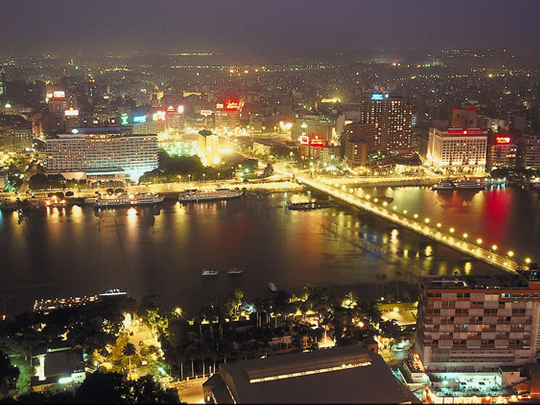
Cairo: Egypt, one of several Arab countries that have cut ties with Qatar, has told the Gulf emirate to make a stark choice just days away from a deadline to comply with a list of demands.
“The ball is now in the Qatari court,” Egypt Foreign Minister Sameh Shoukri said in remarks published on Thursday. “It [Qatar] has to choose between safeguarding Arab national security, or to continue wrecking this security to the benefit of foreign powers.”
On June 5, Egypt, Saudi Arabia, UAE and Bahrain cut diplomatic relations and suspended transportation links with Qatar over its support for terrorism and dubious ties with Iran.
The four countries have also designated as terrorists 59 figures and 12 groups associated with Qatar.
On June 23, Egypt, Saudi Arabia, the UAE and Bahrain gave Qatar 10 days to comply with their demands, or face further consequences.
These demands include curbing ties with Iran; stopping support for terrorist groups; and shutting down the Doha-based Al Jazeera network notorious for hostile coverage of the four countries.
Qatar has said it is reviewing the list, hinting, however, that it finds the demands unacceptable.
Qatar is a staunch backer of the Muslim Brotherhood banned in Egypt, Saudi Arabia and the UAE. Since the Egyptian army’s 2013 toppling of president Mohammad Mursi who hails from the Brotherhood, Qatar and Al Jazeera have made no bones about their condemnation of the move.
“The Egyptian demands are known and clear,” Shoukri said. “He who wants to continue conspiring against Egypt and its people will be the first to be scorched by the fire of plotting,” he said.
“Egypt will continue to firmly stand against all forms of terrorism until it is uprooted.”
Earlier this week, Cairo said at a UN meeting that Qatar is the main sponsor of terrorist groups in Libya, Egypt’s western neighbour. The accusation was made shortly after the Egyptian army said it had destroyed 12 vehicles packed with weapons and explosives on the border with Libya.
Shoukri’s remarks came on the eve of the fourth anniversary of massive protests against Mursi’s ruling that culminated days later in his overthrow.
“Egypt and its people who revolted against tyranny of radical thought, monopoly of power and the undermining of the country’s national institutions in the interest of foreign powers and alliances can by no means accept any compromise on national security and resources,” he added.
Qatar has spurned Cairo’s requests for handing over fugitive Islamists wanted in Egypt where they have been convicted of inciting or involvement in violence.
One key figure is Yousuf Al Qaradawi, an Egyptian-Qatari cleric, who is the Brotherhood’s spiritual leader.
In 2015, an Egyptian court sentenced Al Qaradawi to death in absentia for involvement in orchestrating a mass jail break in the country during the 2011 uprising that forced long-time president Hosni Mubarak out of power.
Egypt has repeatedly accused the Brotherhood and Qatar of standing behind a spate of deadly attacks that have hit the country since Mursi’s ouster.
“All other Arab countries have to follow the example of Saudi Arabia, Egypt, Bahrain, the Emirates and Yemen in their moves aimed at protecting their security from Qatar and defanging its terrorism,” Makram Mohammad, a veteran Egyptian analyst, said.
“This will set the right example for the international community to punish every country that offers assistance to terror groups,” added the columnist in the semi-official newspaper Al Ahram.
“If not, war on terrorism will be senseless.”












